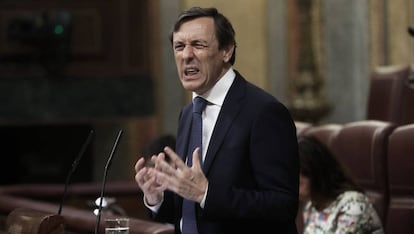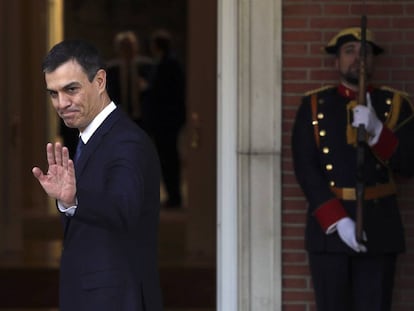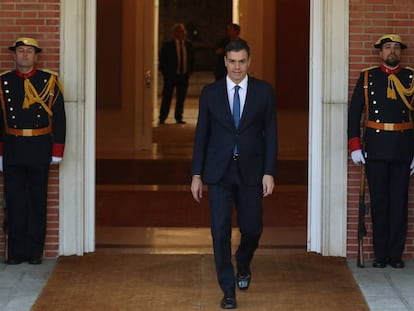The decision the Popular Party must make
Now that they are in opposition, the conservatives need to regroup and exercise loyal opposition to the government, not create tension and agitation

After Mariano Rajoy irresponsibly decided not to resign, and subsequently refused to call elections, his conservative Popular Party (PP) must now decide what kind of opposition it will practice in Congress, and above all else, with what kind of leadership.
The worst option would be – and some of the party’s initiatives in the first hours of the new government suggest this – to try to discredit the new administration of Socialist Party (PSOE) Prime Minister Pedro Sánchez, using the argument that his path to power was illegitimate, fraudulent, or damaging to the stability of the country.
The worst option for the PP would be to try to discredit the new administration using the argument that his path to power was fraudulent
This strategy of constant tension and agitation – which the party employed against the governments of past PSOE prime ministers José Luis Rodríguez Zapatero and Felipe González – would not be advisable. Above all else, because the recent history of the PP and Rajoy is far too fresh in the memory of the electorate for the PP to present itself as squeaky clean. On the contrary, its ethical and political mistakes are still present in the collective conscience, and will be constantly updated as new convictions are likely to be handed down in the ongoing Gürtel corruption trials, with the effect of damaging yet further the PP’s image and potential for leadership.
In this situation, the PP could try to foment political and economic instability by torpedoing its own budget in the Senate (which it controls) and alerting foreign investors and European partners of apparent dangers, but the party would have trouble capitalizing on this move as a way to get any closer to power or to ingratiate itself with voters. Voting against its own budget just to get back at the Basque Nationalist Party (PNV) for supporting the no-confidence motion against Rajoy would be inconsistent, and it would close the door on a future when the conservatives might need support from the Basque nationalists once more. Above all, it would be a distraction from the biggest inconsistency of all: the fact that the PSOE and other parties originally rejected the budget, but are now choosing to embrace it.
If the PP wants to rebuild itself, it must display the kind of intelligence and foresight that it has lacked to date
Before starting a boycott campaign, the PP should listen to the signs being sent to them by citizens, and reflect deeply on them. Being in opposition affords them an incomparable chance to embark on a transition toward a new period of regeneration that can leave not only corruption behind, but also the tensions that defined the political mood in past times. The PP must address the issue of leadership, and it should do so from a position of internal democracy, rather than the personality-focused style that it is accustomed to. The party should also consider the need for institutional loyalty, the same kind it found in the opposition when it was in power – especially over the Catalan issue, where the Socialists have always behaved with absolute constitutional fealty.
With 134 deputies in Congress (making them the largest group) and 149 senators, the PP can do a lot of damage, with the potential to block any measures approved by a democratic majority. This kind of filibustering would be poor politics indeed. If the PP wants to overcome its troubles and rebuild itself, especially in the eyes of center-right group Ciudadanos (Citizens), the rival that poses the greatest threat, it must display the kind of intelligence and foresight that it has lacked to date. If the no-confidence motion pushed it into opposition, the PP should nevertheless reflect on, and learn from, its own countless errors. And if not, it should at least be open to reasons of state and institutional loyalty. To boycott its own budget now would be a bad way to start.
English version by Susana Urra and Simon Hunter.









































